Against Ikigai
And How to Move Toward a Diversified Portfolio of Meaning
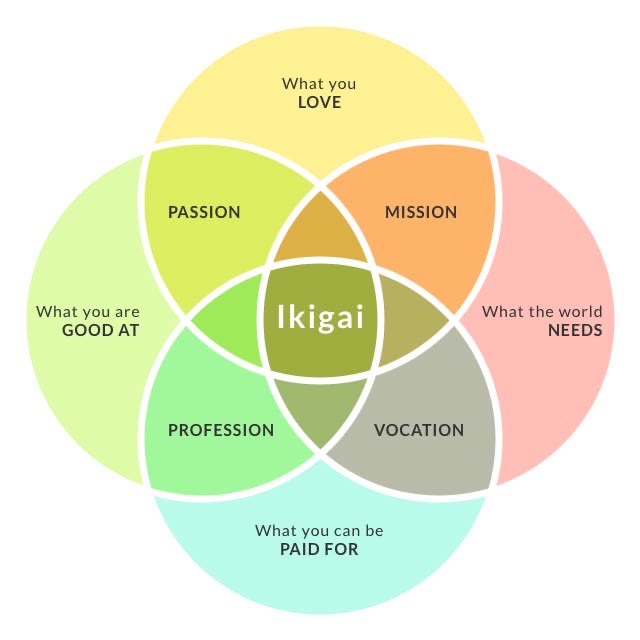
Sponsored By: INDX
Are you drowning in bookmarks or Chrome tabs?
Introducing INDX—it’s like Pinterest for learning anything. INDX can:
- Save any article, podcast, or Twitter thread you find interesting.
- Remind you to go back to the best content so you actually consume and learn it.
- Surface articles on the topics most interesting to you, from the people you trust.
Since launching earlier in the year, INDX has become the go-to tool for creators, operators, and investors in tech to ditch information overload and actually learn.
Download INDX on the App Store today and start taking more control of your content.
Hi! Dan here—I spent a lot of time in my twenties searching for Ikigai: the sweetspot of what I'm good at, what I enjoy, what I can get paid for, and what the world needs. I think it's an incredibly useful concept, but reading this piece from Simone Stolzoff reframed it significantly for me.
In our singleminded pursuit of meaning and purpose at work we tend to forget about, or discount ways that we might find meaning in other places. And learning to create a "diversified meaning portfolio" as he puts it, can have a major positive impact on your well-being...and even your work. I found myself asking: What would it be like to not put so much pressure on work as the only source of meaning in my life? It's a useful question, and this article will show you how to answer it.
You’ve seen the image. It’s perhaps the most popular Venn diagram of all time. Four intersecting circles: what you’re good at, what you love, what you can be paid for, and what the world needs. At their intersection lies the all-holy Ikigai, your “reason for being.”
Simply answer those four questions, and voila! your vocational soulmate enters stage left. It’s a visual accompaniment of LinkedIn broetry, a slide on the TED stage, and a bow in the career coach’s quiver.
But Ikigai was not always a dream job formula. Originally a Japanese portmanteau of iki (life) and kai (worth, or interestingly, fruit!), the concept evolved from a belief in traditional Japanese medicine that physical, mental, and emotional wellbeing are interconnected. As Japanese neuroscientist Ken Mogi writes, Ikigai is simply a reason to “wake up to joy.” It can be as small as taking your dog for a walk or your afternoon cup of tea.
Although searching for one's life purpose in work can be a noble pursuit, the popularized notion of Ikigai that locates meaning only in work is misguided. It has diluted the term to the point where we've lost the script.
If we go back to the original meaning of the term, we’ll find a way to live richer and more fulfilling lives—both inside of work and outside of it.
Before I go on, I want to share a brief anecdote that changed how I thought about my own “reason for being.” During my senior year of college, I got the opportunity to interview my favorite writer, a poet named Anis Mojgani. At the time, Mojgani was at the top of his game. He had just won back-to-back titles at the National Individual Poetry Slam. He was the first person I had ever met who was able to make a living from writing and performing. He traveled the world to speak on college campuses and open for musicians. He was a verifiable rockstar of rhymes, my professional idol.
At the time, I was a 22-year-old poetry student, about to embark on a journey into an unknown future. During our chat, I was convinced Mojgani would give me the “follow your passion” pep talk I thought I needed. He didn’t.
When I asked him whether he believed in the whole “love what you do and never work a day in your life” mantra, he said something I’ll never forget: “Work will always be work. Some people work doing what they love. Other people work so that they can do what they love when they’re not working. Neither is more noble.”
That last sentence shook me. Until that day, I believed figuring out what to do for work was life’s ultimate mission. I had interpreted Annie Dillard’s words—how we spend our days is, of course, how we live our lives—to mean that my chosen work would define not just what I did, but who I was. But here was my career crush, a professional poet no less, telling me that it’s fine to have a day job.
I bring this up not to guilt trip those whose reasons for being neatly align with their means of paying rent, but rather to show that self-actualization through work is not the only path. Much as an investor benefits from diversifying their investments, we too benefit from diversifying the sources of meaning and purpose in our lives. The question is: how?
Meaning is not something that is bestowed upon us—it’s something we create. And as with any act of creation, it requires time and energy. One of the downsides of a life completely subsumed by work is that it leaves room for little else. In the words of psychologist Esther Perel, “Too many people bring the best of themselves to work and bring the leftovers home.” When we give all of our energy to our professional lives, we deprive the other identities that exist within each of us—parent, sibling, neighbor, friend, citizen, artist, traveler—of the nutrients to grow.
So, assuming you want to diversify your portfolio of meaning beyond work, how should you do it?
My first recommendation is simply to carve out the space to do so. I can’t tell you how many people I’ve spoken to in the process of researching my book who have told me “I don’t know what I’d do if I wasn’t working.” It’s a chicken-or-the-egg problem. People work all the time, so they don’t know what they’d do if they weren’t working. And people don’t know what they’d do if they weren’t working, so they work all the time.
Rabbi Abraham Joshua Heschel described the weekly practice of Jews abstaining from work, Shabbat, as “a sanctuary in time.” I love the idea of building infrastructure around sacred time as one might build infrastructure around sacred space. Protecting nonwork time is particularly important because knowledge work can easily expand like a gas to fill all unoccupied space.
Your time sanctuary can take many forms—an hour a day with your phone in airplane mode, a weekly hobby date with a friend—but regardless of what it looks like or when it is, make sure you are carving out a space where work is not an option. One of the benefits of, say, going to a yoga class or church is that it’s impossible to work while you're there. Presence is better protected by obligations than intentions.
Once you’ve carved out time, the next step is to choose how to fill it. I’ve found a great way to do so is to get clear about what you value. Plenty of people say they value things like creativity or service, but unless they actively engage in service or creation, these stated values are shallow. “Show me your calendar, and I’ll show you what you value,” Stanford business school professor Joel Petersen famously tells his students.
I learned about the value of translating values into actions in 2019 when I decided to move into a 14-person adult co-op. For years I believed community building was one of my core values, but it wasn’t until I moved into the communal house that I understood what building community looked like in action. Cooking family dinners, planning group game nights, doing my weekly chores—the verbs of building community are what made my experience meaningful.
This isn’t to say that if you say you care about community, you must live in a co-op. Rather, I bring this up to show that we derive meaning from the doing. We often think that we should invest in activities only if we find them meaningful, but I believe the causal relationship more often goes the other way: we find activities meaningful through our investment in them.
The last step in my framework for diversifying the sources of meaning in your life is to reflect on why you find an activity meaningful. In the words of philosopher John Dewey, “We do not learn from experience, we learn from reflection on experience.” The same can be said for meaning-making—we make meaning through reflection.
Perhaps the best example of this comes from the psychologist Viktor Frankl, who spent three years living in Nazi concentration camps during the Holocaust. “Suffering ceases to be suffering at the moment it finds a meaning,” he writes in his celebrated memoir Man’s Search for Meaning. Although he was forced to endure years of inhumane conditions, he was able to make meaning from his experience through reflection.
Each of us does not have a single reason for being, but rather multiple reasons for being. A job might offer one, as might faith or family or a friend group or a hobby. Assuming only one reason for being is to balance on a narrow platform, vulnerable to a strong gust of wind. But when there are multiple containers in our lives, when we are able to hold multiple Ikigais, we are able to stand with our feet spread and knees bent—far more stable, resilient, and fuller versions of ourselves.
If you liked this article you should follow Simone Stolzoff on Twitter.
Thanks to our Sponsor: INDX
We finally have a place to collect and save all of those articles, podcasts, and Twitter threads that we said we were going to read later but never did. It’s called INDX, the Pinterest for learning. INDX is the platform to save content you find interesting, as well as share and discover more around your favorite topics.

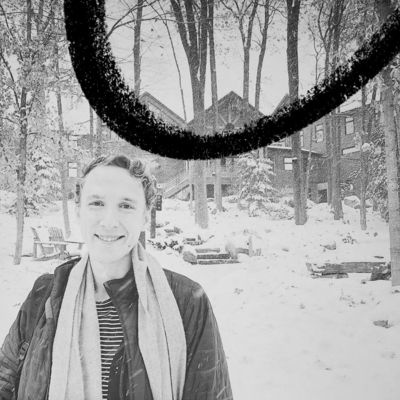
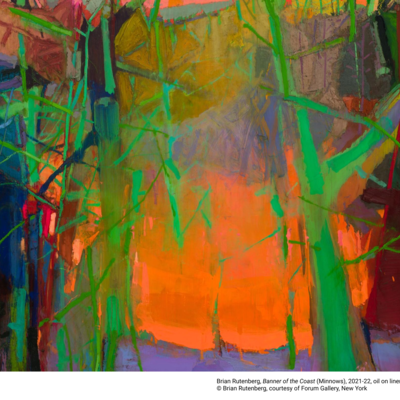
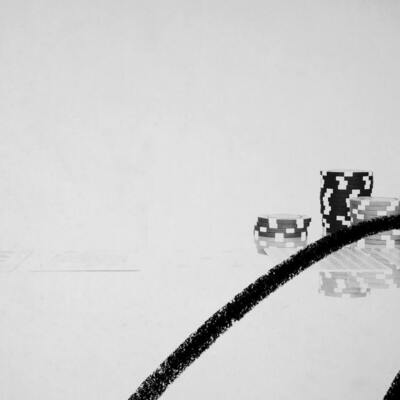

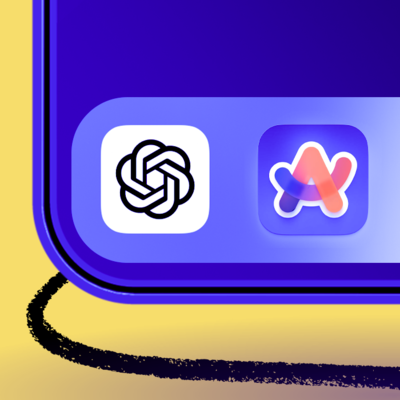
Comments
Don't have an account? Sign up!